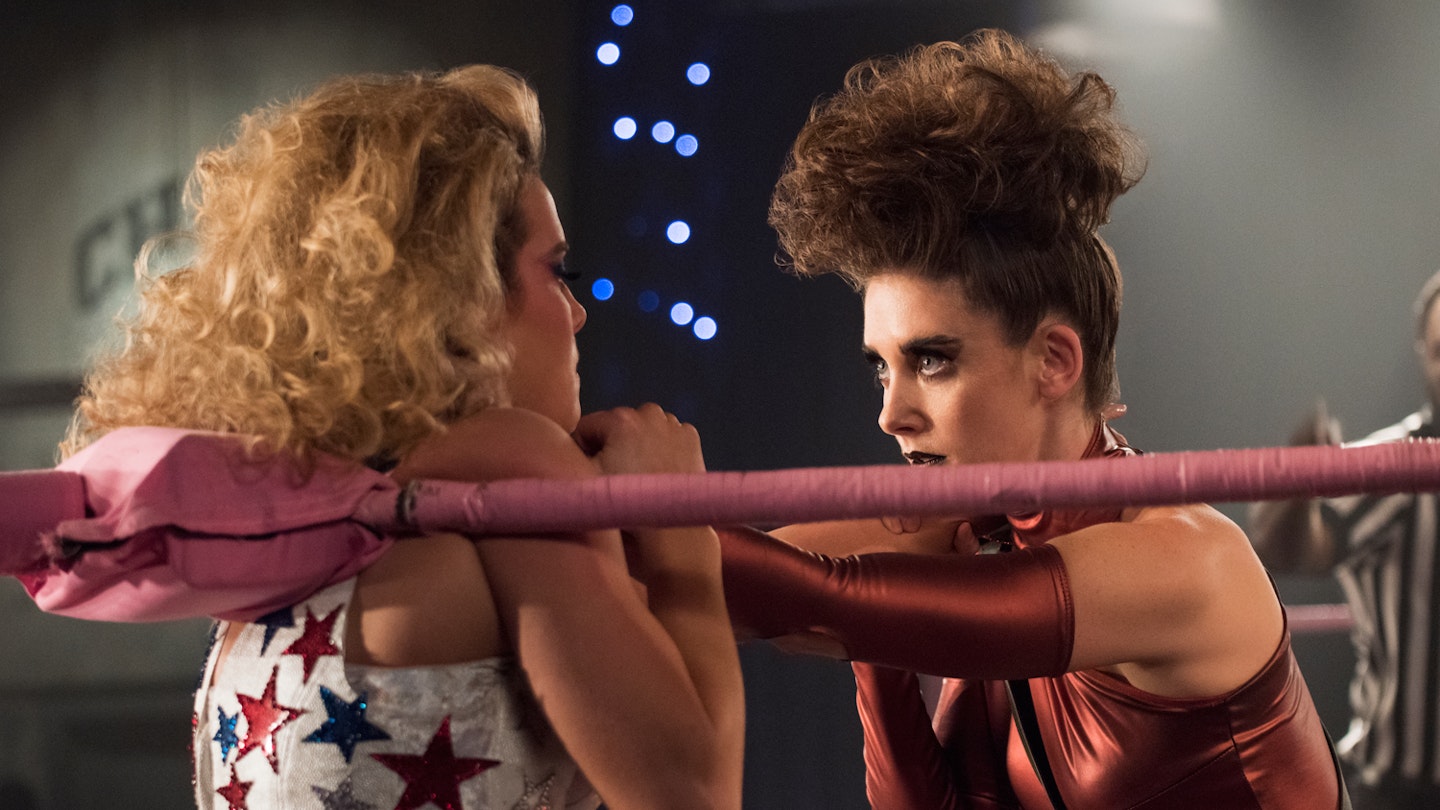The first season of GLOW was a hell of a lot of fun, a whirl of DayGlo Lycra and suplexes to disco hits. It had a set-up with endless potential: a group of women who want to be stars, but are ignored by Hollywood due to being an undesired colour/size/demeanour, get cast on an unpromising, cheapo ladies’ wrestling TV show. They veer between embarrassment at the show’s tackiness and offensive stereotypes and the joy of creating their own world. There were no duff characters and it was both campy and smart, but it was, for want of a better term, wrestling with where it was going. Narrative momentum was sluggish. Season 2 has no such issues. What was a good show is now great.

Season 2 is about turning the show from a lark in a gym into a real TV hit and its cast finding their places in it. Ruth (Alison Brie) becomes less the lead than part of the ensemble. All the supporting characters step into the spotlight, especially Debbie (Betty Gilpin, stellar this season), who is not adjusting well to life as a single woman.
Character drama doesn’t weigh Season 2 down — it’s as camp and funny as ever.
One of the best aspects of GLOW, more developed in Season 2, is how it digs into what a strange time the ’80s was for women. Second-wave feminism had long since swept in and GLOW’s women confidently forge careers, enjoy their sexuality (new character Yolanda, played by Shakira Barrera, is an out lesbian) and insist on equal footing with men (Debbie demands to be made a producer or she’ll quit, and Ruth turns director). Yet they have ghosts of internal misogyny — one foot is still dragging out of the ’50s. There’s a scene later in the series, a plus-ça-change moment with a sad Weinstein nod, when Ruth is asked to meet a network executive in his hotel room. He is expecting sex. Standing alone as he runs a bath, a look plays across Brie’s face that shows fast debate about the right decision here. She leaves, but is berated by another cast member for not flirting a little, for the good of the show, because that’s ‘how it works’. She feels, awfully, guilt. ‘What is worth surrendering to get what I want?’ becomes the show’s running theme. Tamme (Kia Stevens), aka Welfare Queen in the ring, a black stereotype who lives large on benefits, is embarrassed when her Stanford student son sees her playing a “minstrel”, but proud of herself for becoming a success. Debbie makes great career advances but at the cost of her family. Cosmopolitan asked in the 1980s if women could “have it all”. Each of GLOW’s characters provides a different answer.
All that character drama doesn’t weigh the series down. The heavier battles outside the ring are balanced by the silly ones within. It’s as camp and funny as it ever was. We see an entire episode of the TV show within the show, wooden acting, crap effects and all, and, frankly, it should get a full series commission. The scripts are specked with hilariously odd, sly lines (“What’s Cheers? It’s about an invisible woman named Vera”). The show is no longer just a contender; it’s a hulking great champ.
